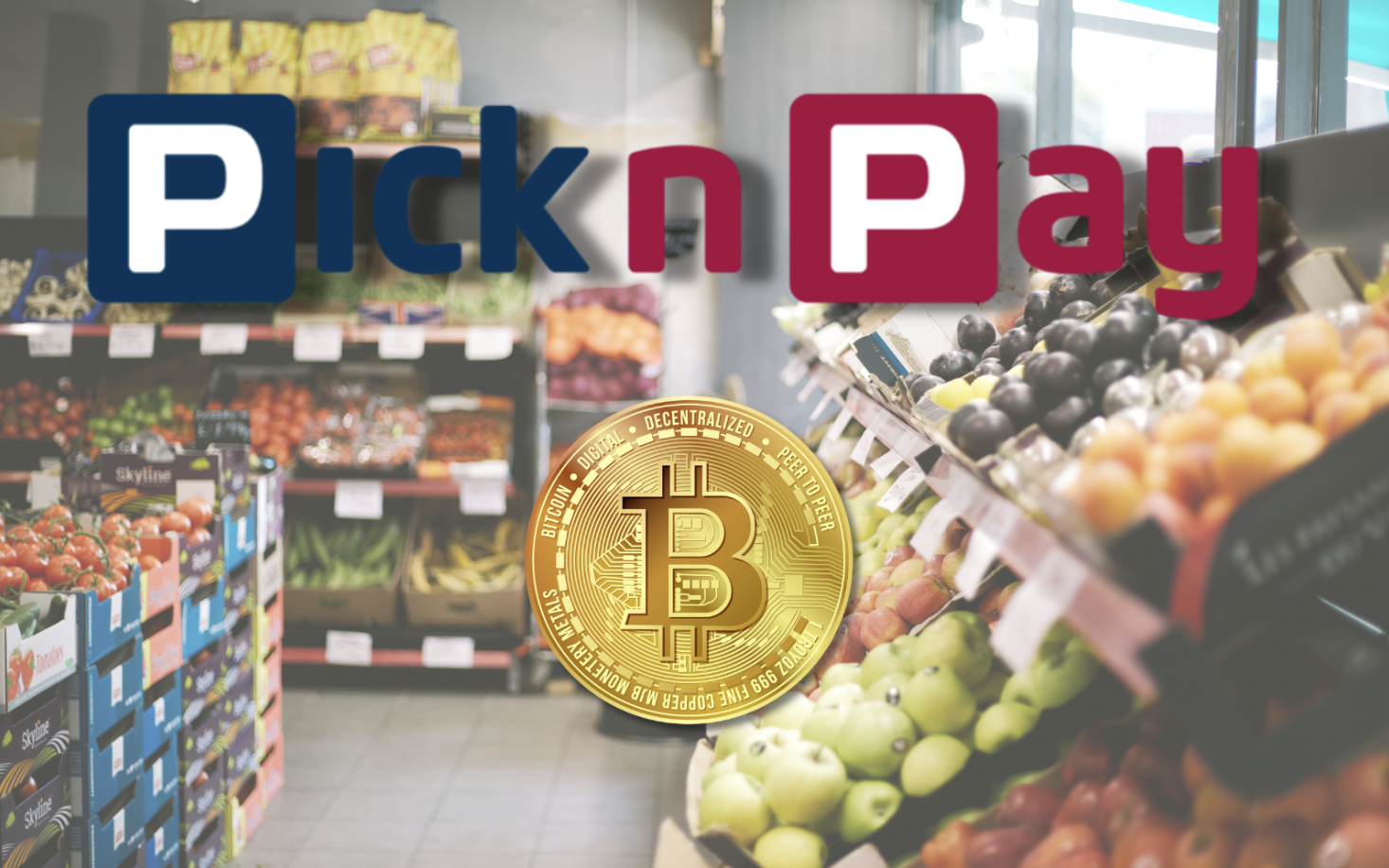Crypto in Africa is no longer just about trading, investing, cross-border remittances, or hedging against inflation. It’s increasingly being used for everyday purchases at mainstream retailers. The shift from digital asset to daily payment method is gaining significant momentum, especially in South Africa.
Pick n Pay leads the way
Pick n Pay (PnP), one of South Africa’s biggest retail chains, is taking the lead in crypto adoption at checkout. The retailer now processes over R1 million in monthly in-store crypto payments — a massive jump from just R25,000 when it launched the service in 2023.
Customers can now:
- Pay with Bitcoin via QR code at any till
- Shop at PnP Express and PnP Clothing outlets using crypto
- Use crypto for groceries, airtime, data, and even municipal bills
Half of these transactions are R500 or less (with a cap at R10,000), with most activity concentrated in the Western Cape, Gauteng, and KwaZulu-Natal — a trend that reflects Pick n Pay’s broader Ways2Pay strategy to promote financial inclusion and make it easy for everyday shoppers, not just crypto enthusiasts, to use digital currency at the till.
What does this mean for everyday commerce?
The rise of crypto at mainstream retailers comes with important implications:
- Greater inclusion for the unbanked and underbanked — In-store crypto payments give consumers without traditional bank accounts a new way to pay.
- Frictionless integration at checkout — Crypto payments are now seamlessly incorporated into existing point-of-sale terminals, making the experience simple and familiar.
- Perfect for micro-transactions — With most crypto payments falling between R300 and R500, this matches the typical size of grocery and utility purchases.
- Validation of crypto as money — Moving from crypto exchanges into retail tills is proof that crypto is gaining ground as a functional medium of exchange, not just a speculative asset.
A wider African picture
This shift isn’t unique to South Africa. Across the continent, small-value crypto payments under $1000 make up about 80% of transaction volume, largely driven by retail and day-to-day use.
Kenya and Nigeria continue to lead in crypto adoption with:
- High volumes of peer-to-peer crypto transactions
- Increasing retail crypto acceptance
- Grassroots examples like Nairobi food vendors accepting Bitcoin
What’s next?
Several factors suggest that crypto-enabled retail payments will keep growing:
- Regulatory support — South Africa’s 2022 declaration of crypto assets as financial products gives retailers a clear and secure regulatory foundation.
- Merchant expansion — As transaction volumes and consumer demand grow, expect more retail chains and independent merchants to adopt crypto payments.
- Ecosystem development — Platforms like Luno Pay, Money Badger, VALR, and Binance are building out infrastructure that will enable crypto payments to become even more interoperable and convenient.
Conclusion
Crypto payments in Africa are shifting from a store of value to an everyday currency. With Pick n Pay processing over R1 million a month via Bitcoin and Luno Pay reporting R2 million in monthly retail volume, crypto is moving from digital wallets to physical tills.
As the technology matures and regulations become clearer, more consumers are paying for groceries, airtime, and even transport with crypto — signaling a broader transformation in payment behaviour. Additionally, this reflects a fundamental change in consumer attitudes. Crypto is increasingly seen as real money, not just an investment. With major retailers paving the way, smaller merchants are likely to follow, accelerating crypto adoption for everyday use across the continent.





